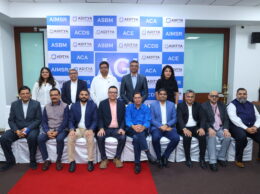Solar power is pivotal in addressing climate change challenges, driven by technological advancements, policy support, and environmental stewardship, positioning it as a key element in a cleaner, more sustainable energy future. Educational initiatives are crucial for promoting a solar-powered future, particularly in countries like India, where solar energy has immense potential due to its geographical location. Schools are increasingly adopting solar solutions to reduce their carbon footprint and promote eco-friendly practices.
Need for skilled workforce
India’s solar manufacturing sector is positioned to be a major contributor to employment, economic growth, and sustainability. However, the solar manufacturing sector in India faces a significant challenge due to a limited pool of skilled workers. Solar EPC companies face challenges in recruiting and retaining skilled engineers, project managers, and technicians, impacting project execution. To address this challenge, educational institutions must align their curricula with the needs of the renewable energy sector. Offering specialized training programs in solar and wind energy can provide the industry with a steady stream of qualified professionals.
On the other hand, aspirants who want to thrive in the solar energy sector must acquire a diverse set of skills, including electronic, chemical, and electrical engineers. In addition to operational expertise, quality engineers and data analysts are in high demand. These positions are crucial for monitoring the production process and examining production data to boost efficiency.
Industry-oriented curriculum
The integration of solar technology into the curriculum offers students a unique opportunity to engage with renewable energy concepts firsthand, enhancing academic learning and fostering a deeper understanding of sustainable practices. Curriculum integration educates students about solar energy concepts, inspiring them to innovate and support sustainable energy solutions. Besides, practical learning in action, such as monitoring real-time data from solar panels, empowers students to make informed decisions about energy consumption in their daily lives.
Solar infrastructure in schools also inspires a greener mindset, encouraging students to think critically about their ecological impact and contribute positively to a sustainable future. Solar panels installed on school rooftops or campuses serve as tangible symbols of commitment to environmental responsibility. The impact of solar integration extends to the community, with open houses and events raising awareness and fostering civic pride. Partnerships with local organizations and businesses can further amplify the impact, creating a network of support for sustainable initiatives.
Significance of vocational training programs
Vocational training programs create a skilled workforce for the growing solar energy sector, job creation, and efficient management of infrastructure. Public awareness campaigns educate the broader population about solar energy’s benefits, carbon footprint reduction, and cost-saving potential. In addition, governments’ collaborations with NGOs and the private sector can further spread knowledge about solar energy technologies, financing options, and success stories. Across these collective efforts, online platforms and e-learning tools can be powerful catalysts for making solar energy education accessible to a wide audience.








